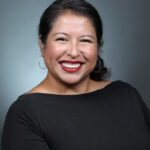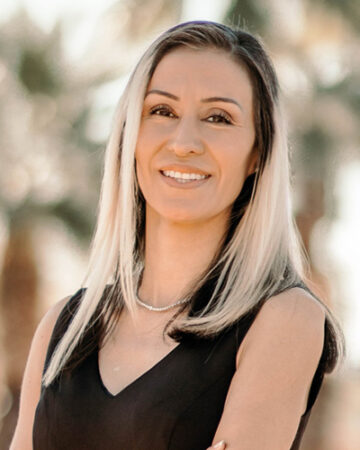Summer Success Symposium
The Summer Success Symposium is a professional and community development event for new and continuing research students from across all graduate fields. Open to all doctoral students, this symposium has a particular focus on bringing together students with an interest in contributing to Cornell’s core value to provide a Community of Belonging where scholars representing different backgrounds, perspectives, abilities, and experiences can learn, innovate, and work in an environment of respect.
Through this symposium, participants have the opportunity to form connections and establish community. This symposium also provides participants with the opportunity to engage with successful alumni, faculty, and professionals. Summer Success Symposium keynote and workshop content focused on providing participants with access to knowledge and insights that will help them navigate their successful transition into and progression through their graduate studies.
2025 Summer Success Symposium
August 19, 2025 | 10 a.m. – 3:30 p.m. ET | G10 Biotechnology Building
Register now!
*August 13 Priority Registration Date
Agenda
10-10:15 a.m. ET
Check-In
10:15-10:30 a.m. ET
Welcoming Remarks
Speaker: Sara Xayarath Hernández, Associate Dean for Inclusion and Student & Faculty Engagement, Graduate School
10:30 – 11:30 a.m. ET
Opening Plenary Session: Developing a Strategic Mentor Network
Speaker: Evelyn Ambríz, ‘11 B.S., ‘15 MPA, Ph.D., Postdoctoral Research for Mentoring & Faculty Engagement, Graduate School, Cornell University
About our Speaker
 Dr. Evelyn Ambríz is an organizational sociologist in the field of higher education and leverages mixed and qualitative methods in her work. Her research examines how capital is gained and exchanged in good ole’ boys’ clubs such as secret societies, historically white fraternities, and C-suites across sectors. More specifically, she focuses on how social positionality and sociolegal context shapes decision-making and engagement within organizations.
Dr. Evelyn Ambríz is an organizational sociologist in the field of higher education and leverages mixed and qualitative methods in her work. Her research examines how capital is gained and exchanged in good ole’ boys’ clubs such as secret societies, historically white fraternities, and C-suites across sectors. More specifically, she focuses on how social positionality and sociolegal context shapes decision-making and engagement within organizations.
Her approaches to research and pedagogy are informed by her extensive experience as an administrator in higher education. Most recently, she served as a postdoctoral associate for mentoring & faculty engagement at the Cornell University Graduate School, working with faculty to introduce and support the implementation of inclusive mentoring frameworks and increase access and opportunity in graduate education.
Previously, she served as an Assistant Dean of Students at Cornell University and received numerous recognitions for her service as a mentor and commitment to the Latino, Black, Asian American, and Pacific Islander communities. A double Cornellian, she received her bachelor’s degree at Cornell in the field of development sociology (now, global development) in 2011 and then her Master’s degree in Public Administration as well as a graduate minor in Latina/o Studies in 2015. She received her PhD at the University of Texas at Austin, where her work centered sociolegal dynamics that shape diversity and inclusion policy in higher education.
11:40 a.m. – 12:40 p.m. ET
Flash Talks & Engagement Session: Caring for Your Health & Well-Being
Session Summary
This session will include a series of flash talks highlighting the importance of taking a proactive approach to managing your overall health and well-being, opportunities on campus in the greater Ithaca community to engage in fitness and recreational activities, and counseling resources accessible through Cornell Health.
12:40-1:15 p.m. ET
Networking Lunch
1:15-2:30 p.m. ET
Alumni Keynote Session: From East LA to the Ivory Tower – A Mestiza’s Story of Empowerment and Transformation in STEM
Speaker: Erika Tatiana Camacho, ’03 Ph.D., Berriozábal Endowed Chair of Mathematics, Professor of Mathematics and Neuroscience, Developmental and Regenerative Biology, University of Texas at San Antonio
About our Speaker
 Dr. Erika Tatiana Camacho is the Berriozábal Endowed Chair and professor in UTSA’s mathematics and NDRB departments. Camacho has a long and very successful career in and outside of academia as a mathematical biologist, researcher, educator, mentor and leader in racial and gender equity. She is one of two researchers in the world leading the mathematical work on photoreceptor degeneration and one of the few mathematicians with a wet lab where she is focusing on metabolic adaptation and protective stress responses in diseased and aging retinas. Camacho was a Fulbright Research Scholar at the Institut de la Vision-Sorbonne Université in Paris 2022-2023 and a Full Professor in SoMSS at Arizona State University 2007-2023. Between 2019-2022 she was Program Director co-Lead of the NSF HSI Program and Program Director of the ADVANCE and the Racial Equity in STEM Education programs. Her leadership, scholarship, and mentoring have won her numerous national and regional recognitions including named a 2024 AMS Fellow and AWM Fellow, the 2019 AAAS Mentor Award, 2014 PAESMEM award from the White House, 2022 NSF Director’s Award for Superior Accomplishment, 2023 M. Gweneth Humphreys Award, 2020 SACNAS Presidential Award, 2018 AAHHE Outstanding Latino/a Faculty Award, and 2013-2014 MLK Visiting Assistant Professor of Mathematics at Massachusetts Institute of Technology (MIT).
Dr. Erika Tatiana Camacho is the Berriozábal Endowed Chair and professor in UTSA’s mathematics and NDRB departments. Camacho has a long and very successful career in and outside of academia as a mathematical biologist, researcher, educator, mentor and leader in racial and gender equity. She is one of two researchers in the world leading the mathematical work on photoreceptor degeneration and one of the few mathematicians with a wet lab where she is focusing on metabolic adaptation and protective stress responses in diseased and aging retinas. Camacho was a Fulbright Research Scholar at the Institut de la Vision-Sorbonne Université in Paris 2022-2023 and a Full Professor in SoMSS at Arizona State University 2007-2023. Between 2019-2022 she was Program Director co-Lead of the NSF HSI Program and Program Director of the ADVANCE and the Racial Equity in STEM Education programs. Her leadership, scholarship, and mentoring have won her numerous national and regional recognitions including named a 2024 AMS Fellow and AWM Fellow, the 2019 AAAS Mentor Award, 2014 PAESMEM award from the White House, 2022 NSF Director’s Award for Superior Accomplishment, 2023 M. Gweneth Humphreys Award, 2020 SACNAS Presidential Award, 2018 AAHHE Outstanding Latino/a Faculty Award, and 2013-2014 MLK Visiting Assistant Professor of Mathematics at Massachusetts Institute of Technology (MIT).
Camacho earned her Ph.D. in applied mathematics at Cornell University in 2003 where she was a Cornell Sloan Scholar.
Session Summary
Dr. Erika Camacho has navigated the challenges of being in STEM and academia at the crossroads between races, nations, languages, cultures, and social classes, with multiple identities and contradictions. She will talk about her journey and constant fight against the physical and imaginary borders imposed on her by others, tradition, and disciplinary fields. She will also talk about what it took to get to where she is while navigating new worlds and being torn between forces that did not fully accept her. Through the story of her journey, she will illustrate her quest to stay true to herself by gathering the strength to embrace her multiple intersectional identities and learn to be unapologetic for being her, even in the face of adversity. Growing up in East Los Angeles, attaining her PhD from Cornell University, playing a pivotal role in NSF HSI Program, becoming a Fulbright Research Scholar, and extending her research to include wet lab work, she understands the struggles that many students and faculty face in attaining their academic and professional goals. Drawing from her personal experiences and the ability to constantly reinvent herself, Dr. Camacho will share her journey of resilience, tenacity, and hard work. She will highlight key decisions that contributed to her continued success and transformation and individuals that were part of her journey.
2:30-3:30 p.m. ET
Mastering Your Transition Into & Progression Through Graduate School
During this panel discussion with continuing doctoral students from across the disciplines, panelists candidly discussed their experiences and strategies for making a successful transition into graduate school. They also shared insights on their experiences navigating their ongoing progression through their graduate studies and their exploration and preparation for various postgraduate career pathways.
Event Sponsors
Graduate School Office of Inclusion & Student Engagement, the College of Engineering Office of Inclusive Excellence, and the Cornell Chapter of the Bouchet Graduate Honor Society
Attribution Statement
This program was modeled in part after PROMISE: Maryland’s NSF AGEP Summer Success Institute.
The launch and institutionalization of the Summer Success Symposium benefited from support from the 2016 ETS/CGS Award for Innovation in Promoting Success in Graduate Education and National Science Foundation under Award No. 1647094, CIRTL AGEP Transformation Alliance from 2016-2022. Any opinions, findings and conclusions or recommendations expressed in this material are those of the Cornell PI team and do not necessarily reflect the views of the National Science Foundation.
